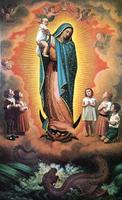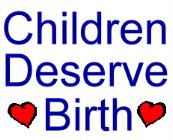Becoming a Catholic
From The Catholic Faith by Rev. Robert J. Fox
In becoming a catholic one must profess the faith, which the Catholic, Apostolic Church teaches. One must believe that the Catholic Church is the one true Church, which Jesus Christ founded on earth and to which one must submit with all his heart. One must believe in those truths contained in the Apostles’ Creed. Also, one must believe that seven sacraments were instituted by Jesus Christ for the salvation of mankind; namely, Baptism, Confirmation, Holy Eucharist, Penance, Anointing of the Sick, Holy Orders and Matrimony.
In making a profession of Catholic faith, one must believe that the pope, the bishop of Rome, is the vicar of Jesus Christ on earth; that he is the supreme visible head of the Church while Jesus Christ is the invisible head, and that the pope teaches infallibly in matters of faith and morals what we must believe and do to be saved.
One must believe everything that the holy, catholic, apostolic Church defines and declares we must believe. One must accept all the ecumenical councils of the Catholic Church. One must reject every error and schism that the Church rejects.
Having taken a course of Catholic instructions to become a Catholic, one must have faith that the Holy Eucharist is both Sacrifice, perpetuating the Sacrifice of the Cross in Holy Mass, and a Sacrament, containing the Body, Blood, Soul and Divinity of Jesus Christ. One must believe that the priest, through the sacrament of Holy Orders, has the power to forgive sins. One must intend to receive the sacraments of the Church worthily.
One is not ready to become a Catholic until he believes all that the Church believes and teaches. To deliberately reject what one knows is a dogma of Catholic faith is to place oneself outside the Catholic Church, or, if one has not yet joined, such rejection will keep one from honestly making a profession of Catholic faith.
Jesus did not command the apostles to teach part of what He had taught them, but all. He did not give his Church some of the authority He had received, with each one being free to pick and choose what to believe and what to do. Jesus rather gave his Church full authority. “All authority in heaven and on earth has been given to me. Go, therefore, make disciples of all nations; baptize them in the name of the Father and of the Son and of the Holy Spirit, and teach them to observe all the commands I gave you. And know that I am with you always; yes, to the end of time” Matthew 28:18-20).
The Church is identified with Jesus Christ as his Mystical Body. In placing oneself under the authority of the Catholic Church, therefore, one is placing oneself under the authority of Jesus Christ. To embrace the Church is to embrace Jesus Christ in the fullness of true faith. One who joins the Catholic Church, having been previously nourished in some other Christian community, rejects nothing that is good and true of the faith he possessed before. All is kept. In the Catholic Church, however, one comes to the fullness of true faith, with the fullness of the authority and powers of Jesus Christ as given to his Church, which Scripture calls repeatedly, “the body of Christ.” If one possessed a beautiful bud of Christian faith before discovering Catholicism, he now discovers that that bud has come into full bloom.
While it is true that not all Catholics understand or live their faith fully, and membership in the Catholic Church is not assurance of automatic salvation since one must live the faith, responding in supernatural love, yet, the fullness of true faith is in the Catholic Church, which Jesus Christ himself founded. He promised that the gates of hell would never prevail against it. While some who call themselves “Catholic” may obscure the true face of Catholicism, they cannot destroy the reality, which Jesus himself promised to keep in the truth through the Holy Spirit unto the end of time. One who knows that the Catholic Church is the ancient Church, which Jesus founded, and that it possesses the fullness of true faith, has a serious obligation in conscience to join it and to live its teachings.
In becoming a catholic one must profess the faith, which the Catholic, Apostolic Church teaches. One must believe that the Catholic Church is the one true Church, which Jesus Christ founded on earth and to which one must submit with all his heart. One must believe in those truths contained in the Apostles’ Creed. Also, one must believe that seven sacraments were instituted by Jesus Christ for the salvation of mankind; namely, Baptism, Confirmation, Holy Eucharist, Penance, Anointing of the Sick, Holy Orders and Matrimony.
In making a profession of Catholic faith, one must believe that the pope, the bishop of Rome, is the vicar of Jesus Christ on earth; that he is the supreme visible head of the Church while Jesus Christ is the invisible head, and that the pope teaches infallibly in matters of faith and morals what we must believe and do to be saved.
One must believe everything that the holy, catholic, apostolic Church defines and declares we must believe. One must accept all the ecumenical councils of the Catholic Church. One must reject every error and schism that the Church rejects.
Having taken a course of Catholic instructions to become a Catholic, one must have faith that the Holy Eucharist is both Sacrifice, perpetuating the Sacrifice of the Cross in Holy Mass, and a Sacrament, containing the Body, Blood, Soul and Divinity of Jesus Christ. One must believe that the priest, through the sacrament of Holy Orders, has the power to forgive sins. One must intend to receive the sacraments of the Church worthily.
One is not ready to become a Catholic until he believes all that the Church believes and teaches. To deliberately reject what one knows is a dogma of Catholic faith is to place oneself outside the Catholic Church, or, if one has not yet joined, such rejection will keep one from honestly making a profession of Catholic faith.
Jesus did not command the apostles to teach part of what He had taught them, but all. He did not give his Church some of the authority He had received, with each one being free to pick and choose what to believe and what to do. Jesus rather gave his Church full authority. “All authority in heaven and on earth has been given to me. Go, therefore, make disciples of all nations; baptize them in the name of the Father and of the Son and of the Holy Spirit, and teach them to observe all the commands I gave you. And know that I am with you always; yes, to the end of time” Matthew 28:18-20).
The Church is identified with Jesus Christ as his Mystical Body. In placing oneself under the authority of the Catholic Church, therefore, one is placing oneself under the authority of Jesus Christ. To embrace the Church is to embrace Jesus Christ in the fullness of true faith. One who joins the Catholic Church, having been previously nourished in some other Christian community, rejects nothing that is good and true of the faith he possessed before. All is kept. In the Catholic Church, however, one comes to the fullness of true faith, with the fullness of the authority and powers of Jesus Christ as given to his Church, which Scripture calls repeatedly, “the body of Christ.” If one possessed a beautiful bud of Christian faith before discovering Catholicism, he now discovers that that bud has come into full bloom.
While it is true that not all Catholics understand or live their faith fully, and membership in the Catholic Church is not assurance of automatic salvation since one must live the faith, responding in supernatural love, yet, the fullness of true faith is in the Catholic Church, which Jesus Christ himself founded. He promised that the gates of hell would never prevail against it. While some who call themselves “Catholic” may obscure the true face of Catholicism, they cannot destroy the reality, which Jesus himself promised to keep in the truth through the Holy Spirit unto the end of time. One who knows that the Catholic Church is the ancient Church, which Jesus founded, and that it possesses the fullness of true faith, has a serious obligation in conscience to join it and to live its teachings.







<< Home